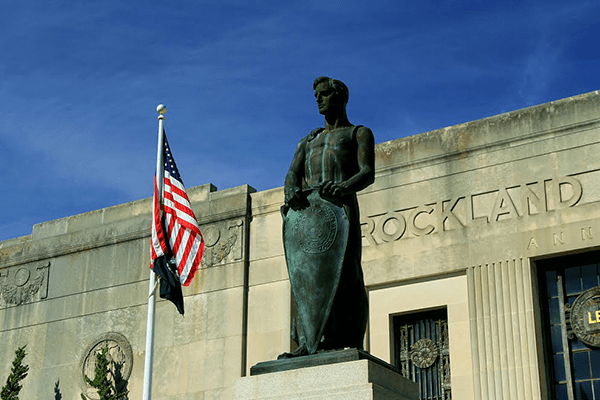|
RCBJ-Audible (Listen For Free)
|
Ruling Says Challenge Barred By Statute of Limitations; Affirms Legality Of Supermajority
By Tina Traster
The Rockland Supreme Court has upheld Clarkstown’s eight-year term limit law, sunsetting Supervisor George Hoehmann’s ability to run again for town supervisor.
Judge Amy Puerto focused her ruling on the premise that the Plaintiffs claims are time-barred by the statute of limitations.
“Term limits are in place and George Hoehmann cannot run for Town Supervisor,” said Carroll.
“This Court is bound by the Second Department’s decision in Islandia (controlling precedent here in the Second Appellate Department), and finds that since the Plaintiff’s challenge to the statute of limitations could have been maintained in an Article 78 proceeding, the four-month statute of limitations is applicable.” Puerto denied Plaintiffs’ Motions for Summary Judgment and granted the Intervenors’ (Councilmember Frank Borelli and Pat Carroll) Motion to Dismiss the case. Defects in passing a law are procedural and subject to a four-month limitations period.
The lawsuit to end term limits was brought against the town by Hoehmann, Councilman Don Franchino, and Thomas Foley, a town resident. Hoehmann’s eight-years in office precludes him from being able to run again. Franchino’s is not term-limited for the 2023 election, and can run again.
Daniel Szalkiewicz, of Daniel Szalkiewicz & Associates, the attorney who represented Councilmen Frank Borelli and Pat Carroll had raised the argument that precipitated the judge’s ruling. The Manhattan attorney in his Feb. 7 filing had argued that the statute of limitations to challenge the referendum provisions expired on Jan. 9, 2015.
Szalkiewicz argued that a challenge to the local law should have been brought within four months after the town passed it. In asking for the case to be dismissed, he wrote, “the Plaintiffs are attempting to bring a claim seven years after the statute of limitations has expired.” Szalkiewicz also argued in his motion that the action would be barred by a longer six-year statute of limitations applicable to actions for declaratory relief. Declaratory relief cases ask the court to interpret or “declare” whether the plaintiffs are entitled to the relief they seek. Either way, he argued Hoehmann’s case was untimely and the court can’t give him the relief he sought.
“Judge Puerto’s decision today reinforced that the law matters,” said Carroll. “Term limits are in place and George Hoehmann cannot run for Town Supervisor.”
Further, the Judge did not buy the Plaintiffs’ argument that New York’s Municipal Home Rule Law prohibits local laws from requiring a supermajority vote from town boards.
“The court disagrees,” the Judge wrote. MHRL provides that no local law “shall be passed except by at least the majority affirmative vote of the total voting power of the legislative body.”
The judge went on to write that the statutes merely require a minimum number of votes for passing a local law, and do not impose a bar on a law requiring a majority of the board plus one. Towns throughout New York, including Clarkstown, have many laws on their books that require a supermajority.
In bringing the suit, the Plaintiffs’ lawyer Robert Spolzino had argued that the term limits law was never legitimately passed because it was voted on without a referendum. He had said that “a law that was never enacted can’t be the subject of a limitations defense.”
The Judge disagreed.
The plaintiffs’ attorney also argued that the “continuing wrong” doctrine applies, meaning that the case stays ripe because the wrong accrues every day anew. In court, Spolzino said his clients are wronged because Hoehmann is unable to run for re-election.
Szalkiewicz pushed back, saying “There’s a law. It was submitted to the Attorney General’s office. The law is there. It shows the town adopted this law. It’s on the books.”
The Clarkstown term limit law was passed eight years ago by a unanimous vote of the town board. Hoehmann championed the law and voted affirmatively for term limits at the time.
The term limits will also affect Town Clerk Justin Sweet, who is running on the Democrat ticket for Town Supervisor.













